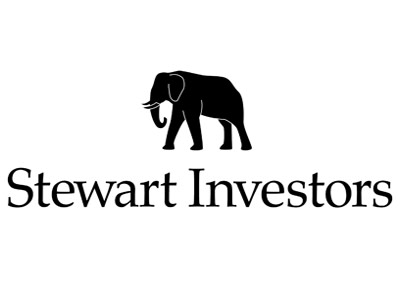Sashi Reddy and David Gait are experienced, patient and talented fund managers
We like their focus on stewardship, sustainability, and high-quality companies
Long-term performance has been strong but short-term performance has been weaker
This fund is on the Wealth Shortlist of funds chosen by our analysts for their long-term performance potential
How it fits in a portfolio
The Stewart Investors Indian Subcontinent Sustainability fund aims to achieve long-term capital growth by investing in high-quality companies predominantly operating in India, Pakistan, Sri Lanka and Bangladesh.
India has the largest population in the world and presents compelling growth potential as its economy evolves. We believe this fund could help diversify the Asian and emerging markets portion of a globally focused portfolio. Although, a fund focused on a single emerging country is a high-risk option, so investors should expect volatility and it should only make up a small part of an investment portfolio.
Manager
Sashi Reddy has been lead manager of the fund since August 2012 but has been involved with the fund since 2009. Reddy joined Stewart Investors back in 2007, where he initially offered analysis and research support to portfolio managers, mainly concentrating on Indian companies.
David Gait serves as deputy manager and has been involved with the fund since 2007. Gait is highly experienced and joined the company as a graduate in 1997. During his time at the company, he’s played a crucial role in developing their Asian investment strategies.
Reddy and Gait receive support from a close-knit team of other fund managers and analysts. Both managers sit on the Stewart Investors Board and manage other funds alongside this one. We believe they can comfortably handle these responsibilities given the overlap in approach and supportive team dynamic.
Process
The investment approach at Stewart Investors has been grounded in the same philosophy since 1988. This philosophy is built on stewardship, where fund managers treat investors' capital as their own and strive to grow wealth over the long term while minimising losses during periods of uncertainty.
‘Quality’ is a broad term in the investment world but for the managers at Stewart Investors it centres around three key pillars: management, franchise, and financials. They are hunting for companies with robust financial strength and sustainable growth prospects.
They put great emphasis on the people and culture within businesses, only choosing to invest in companies led by management teams they trust and deem to have integrity. Many of the companies they own also still have a degree of founding family ownership.
The team pay little attention to the benchmark and construct the fund using a ‘bottom-up’ approach – this means they focus on the prospects for individual companies rather than making decisions based on wider economic events. This is a concentrated portfolio of between 30-60 holdings, currently they invest in 36. That means each company can have a significant impact on performance, although it’s a higher-risk approach. Compared to its benchmark, the fund invests more in sectors like industrials and consumer focused businesses. In contrast, less is invested in financial and technology companies.
Although they can invest across the subcontinent, the managers mainly concentrate on India, which makes up almost 98% of the fund. Large and medium-sized companies are the primary focus, but they also invest in some higher-risk smaller companies.
When making any investment, the managers take a long-term view and are prepared to be patient. This means that only a few changes are made to the fund every year. Over the past 12 months, the managers have bought five new companies and sold five companies.
Unusually for a Stewart Investors fund, the managers bought and sold Tata Technologies in a short space of time following its initial public offering (the first time a company is listed on the stock market). The company’s share price shot up and made the shares expensive quickly, so the managers decided to prudently sell. Other new investments included RBL Bank, a private Indian bank. The company is currently undergoing a turnaround and the managers are confident the new team in charge will improve the company’s prospects.
Long-term consumer staples company Dabur was also sold from the fund. Whilst the managers retain conviction in the business, the company’s share price valuation had become too high for the managers to tolerate. In turn, they’ve used the proceeds to top up more attractively valued companies they already own.
Culture
We think the culture and philosophy that has evolved at the group over the years is attractive. The team doesn't put personal gain ahead of its investors and looks for companies that treat their customers in a similar way. It also places emphasis on recruiting and maintaining great people. Every manager and analyst advocates the team's overriding philosophy.
Stewart Investors forms part of First Sentier Investments, which was acquired by Mitsubishi UFJ, a Japanese bank, in 2019. Takeovers can sometimes lead to disruption and corporate change, though positively Stewart Investors remains an independent investment team.
ESG Integration
For the team at Stewart Investors, Environmental Social and Governance (ESG) considerations are much more than a label or box to be ticked. Taking these factors into account is a natural extension of the same investment process they’ve used for decades. The team’s philosophy is founded on stewardship – when they make an investment, they see themselves as part-owners of the business and want to make sure it’s run in a way that’ll benefit all shareholders.
ESG issues form a core part of this. For example, they don’t like companies that make reckless decisions in the pursuit of short-term gains, rather than focusing on longer term, more sustainable growth. A business shouldn’t exploit its workforce, take advantage of tax loopholes, or skirt around industry legislation. Importantly, it should cause little, if any, harm to the environment around it. Stewart Investors has made a firm-wide commitment not to invest in companies whose primary business is to make cigarettes (or other tobacco products), or controversial weapons.
The team also engages closely with company management. It helps them make sure management remain on track with sustainability initiatives and means they can encourage a change in behaviour if required. If they don’t think a business meets their standards, or is doing enough to address a problem, they won’t invest. They produce an annual Responsible Investment report, and a Stewardship report. These reports outline the firm’s voting record, provide engagement updates and case studies, and present other ESG-focused research.
Cost
The fund has an ongoing annual charge of 0.93%. Our platform charge of up to 0.45% per annum also applies, except in the HL Junior ISA, where no platform fee applies.
Performance
Reddy and Gait have delivered strong returns to investors during their time managing the fund. Over the past decade, the fund has returned 319.20%*, versus 244.73% for the IA India/Indian Subcontinent sector average. They’ve also outperformed the MSCI India index return of 233.75%. Our analysis puts this down to the managers’ ability to identify winning companies. As always though, past performance isn’t a guide to future returns.
The managers’ focus on quality companies and a more conservative investment style means the fund has tended to hold up better when the Indian stock market falls but doesn't quite keep up when it rises.
This has been the case over the past year (to end of June 2024) with the fund returning 15.87% versus 24.03% for the IA sector. Meanwhile the index returned 28.03%. Stock selection was a headwind for the fund, particularly within sectors like industrials and healthcare. Encouragingly some of the managers biggest investments such as manufacturing company Mahindra & Mahindra and engineering conglomerate CG Power & Industrial Solutions were among the fund’s top performers.
We're positive about the fund's long-term prospects, but investors shouldn't underestimate the potential for volatility, especially as the fund mainly focuses on a single emerging country. All investments can fall as well as rise in value so you could get back less than you invest.
Annual percentage growth
Jun 19 – Jun 20 | Jun 20 – Jun 21 | Jun 21 – Jun 22 | Jun 22 – Jun 23 | Jun 23 – Jun 24 | |
|---|---|---|---|---|---|
Stewart Investors Indian Subcontinent Sustainability Fund | -17.41% | 51.42% | 12.63% | 13.02% | 15.87% |
IA India/Indian Subcontinent | -23.33% | 46.68% | 10.25% | 6.49% | 24.03% |
MSCI India NR | -21.02% | 46.25% | 14.34% | 3.39% | 28.03% |


